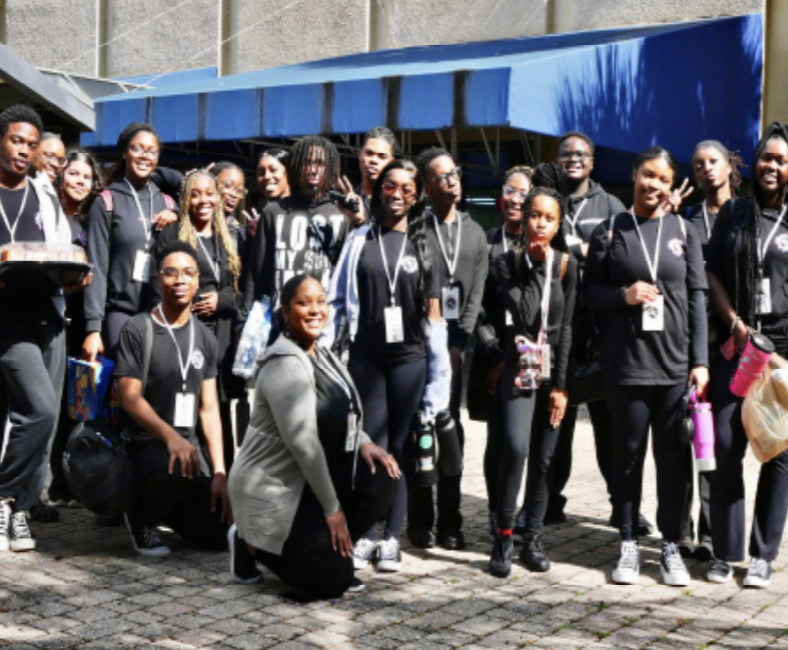Florida midterms election update: what changed in our state
On Nov. 8, Americans exercised their right to vote for leaders and reform bills at the U.S. midterm election. Since then, various changes have been made to the country and state’s legislatures.
The country’s midterms are the elections held halfway through the president’s four-year tenure. Elections occur to select new members of Congress, state governors and local leaders such as mayors, judges and other local officials.
Florida’s congressional elections saw the election and reelection of a state Republican majority. In Florida’s senate elections, incumbent Republican Senator Marco Rubio was reelected, beating Democratic candidate Val Demings, while in Florida’s House of Representatives elections, Republicans won 20 of Florida’s 28 U.S. House seats.
In Florida’s state elections, current governor Ron DeSantis was reelected, defeating former governor and Democratic candidate Charlie Crist; this will be his second term as governor.
Since the midterms, more changes have occurred in government. On Jan. 7, Republican congressman Kevin McCarthy was elected on the 15th ballot as the new Speaker of the House.
According to Vox, a congressman going all the way to a 15th ballot for election as House Speaker had not happened since the Civil War; this occurred due to McCarthy’s unavailability of getting the absolute majority of votes until then.
New bills have also been introduced, passed or are on the path to being so.
On Dec. 13, the Respect for Marriage Act was signed into law by President Biden. The bill was approved by a 258-169 vote. According to Congress.gov, “this act provides statutory authority for same-sex and interracial marriages.”
A bill that could be on the way to ratification is the Born-Alive Abortion Survivors Protection Act. This bill was first introduced in 2015, and would, according to Slate, “require doctors to offer the same care after abortion that is available to any child of the same gestational age, and it prescribes fines and prison time for doctors who violate it.” On Jan. 11, the bill passed the House and is now on its way to the Senate, though its ratification there is unlikely due to the chamber’s Democratic majority.
Since his reelection, Florida Gov. DeSantis has proposed multiple legislations. On Jan. 17, DeSantis announced a policy proposal prohibiting many efforts of pandemic reduction concerning the state’s mask mandates and vaccine requirements.
According to CNN, the proposal would “permanently prohibit Covid-19 vaccine passports in Florida, prohibit Florida schools from instituting Covid-19 vaccine or mask requirements, forbid businesses in the state from requiring masks and bar ‘employers from hiring or firing based on mRNA jabs.’”
On Jan. 23, DeSantis proposed legislation to create a Teachers’ Bill of Rights. According to the Florida governor, the bill of rights would “empower educators to be leaders in their classrooms, enact paycheck protection, reduce terms for school board members from 12 to eight years, and invest another $1 billion in teacher pay.”
However, the DeSantis administration’s recent rejection of the Advanced Placement (AP) high school course on African-American Studies in the state is being the subject of controversy.
On Jan. 12, the Florida Department of Education’s (FDOE) Office of Articulation sent a letter to College Board, the organization that manages AP classes, forbidding the course’s inclusion in school, stating, according to MPRNews, “As presented, the content of this course is inexplicably contrary to Florida law and significantly lacks educational value.”
DeSantis defended the class’s ban, stating in a press conference on Jan. 23 that the course includes “queer theory” and imposes a “political agenda” to students, In response, on Feb. 1, College Board released a modified AP African-American Studies curriculum.
According to NPR, the units regarding intersectionality and activism, Black feminist literary thought, and Black Queer Studies are no longer included. In addition, the exploration of the Movement for Black Lives was altered. Now, Black Lives Matter is listed alongside Black conservatism as a sample course project.
The AP course’s modification now requires the FDOE’s approval.
“People should have the right to know what happened to African-Americans and that it is very important that we learn about it… we can’t just leave it in the past, we should teach our kids about it too,” junior Alyssa Cifuentes said.
The 2022 midterm elections updated the leaders of the country. The people have spoken, and their votes heard, with those whom they elected already making impactful decisions in government.




























